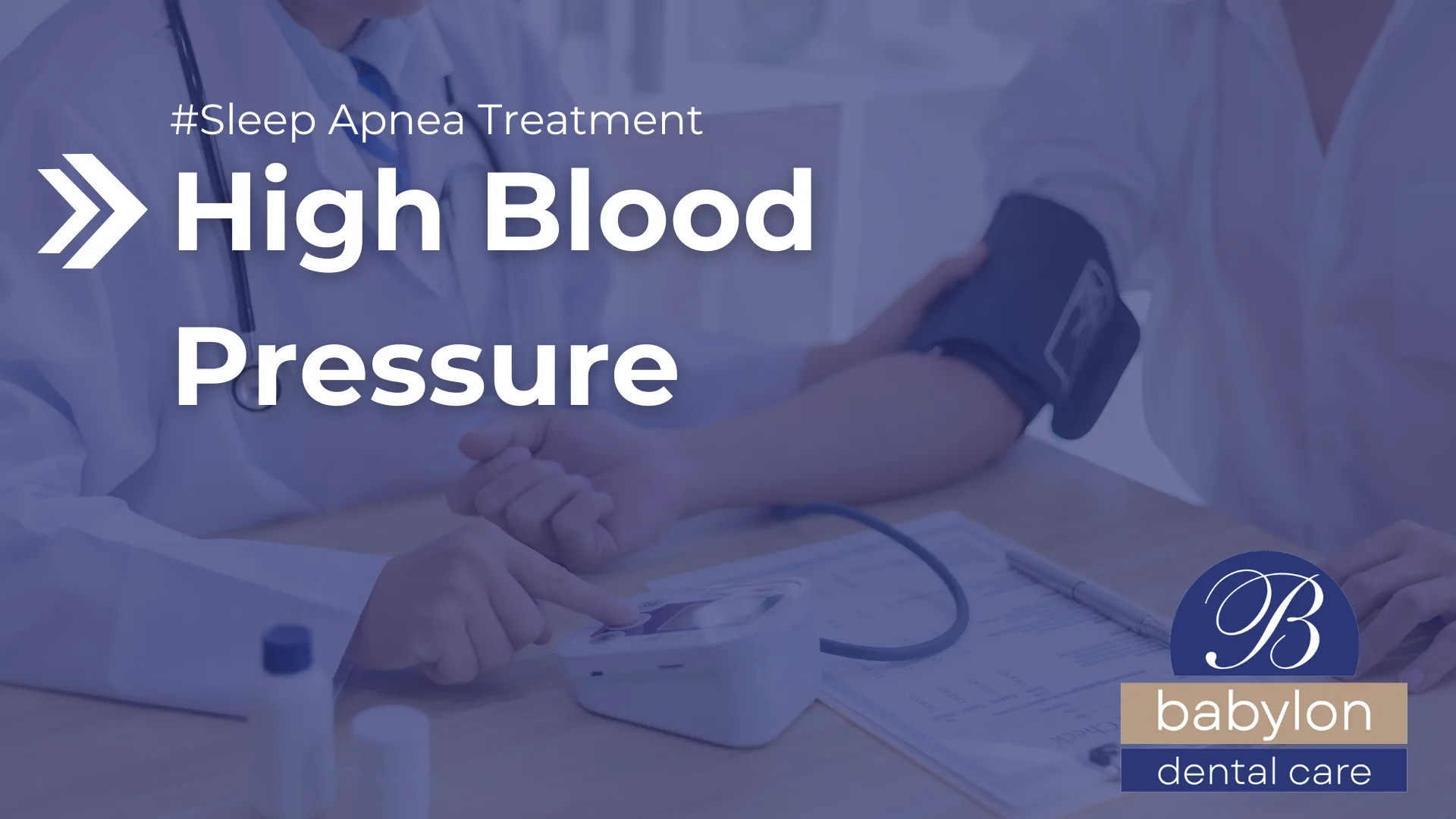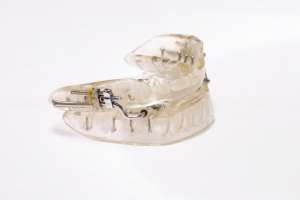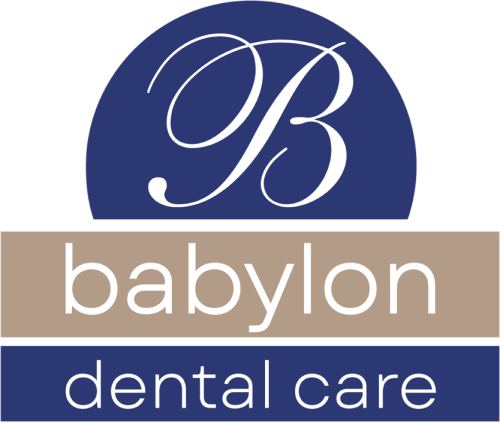
Blood pressure is a key indicator of our cardiac, kidney, and brain health. We’re often told to keep it in a healthy range by cutting back on salt, maintaining an ideal weight, and staying away from alcohol and smoking. However, our sleeping habits can also impact our blood pressure. Sleep apnea patients repeatedly experience restless nights, which can cause high blood pressure. In turn, their risk of heart attacks, strokes, kidney diseases, and brain diseases increases.
If you’re struggling with sleep apnea and hypertension, the most proactive step you can take is to get your nighttime breathing under control. At Babylon Dental Care, Dr. Clifford Brown and his sleep apnea treatment team use oral appliances and other innovative treatments to address sleep apnea at its source. Our patients don’t just experience better sleep. They also improve their oral health and overall well-being.
Contact our office at (631) 983-6665 to schedule a consultation and exam with one of our professionals in West Babylon or Patchogue, NY.
What Is Sleep Apnea?
“Apnea” is the medical term for when someone stops breathing for a short time. Stopping breathing could be a conscious act, such as when someone holds their breath for a few seconds, or an unconscious one, such as when they snore. Sleep apnea patients experience many occurrences where they temporarily stop breathing at night.

While the nervous system may be involved in some sleep apnea cases, most cases are purely “obstructive.” In other words, something stands in the way of proper airflow through your nose, mouth, throat, and lungs. Blockages in the airways can cause the following symptoms:
- Snoring
- Insomnia
- Fatigue during the day
- Memory or attention problems
- Mood swings
- Headaches upon waking
While obstructive sleep apnea affects people of both sexes and all ages, some are at higher risk for developing it than others. Risk factors include:
- Older age
- Obesity
- Decreased throat muscle tone
- Specific facial structures, including a short or narrow jaw
- Family history of sleep apnea or asthma
- Smoking, including exposure to secondhand smoke
- African-American or Hispanic ethnicity
Why Do Sleep Apnea Patients Get Hypertension?
High blood pressure is one possible complication of obstructive sleep apnea. If you have high blood pressure from another cause, it can also trigger or worsen sleep apnea.
The reason for this cycle involves your body’s fight-or-flight hormone, norepinephrine. If you have a blocked airway at night, your body will release norepinephrine. This process opens the throat and moves the obstruction out of the way, although it’s for a short time. However, it also kicks your heart into overdrive, raising your pulse and blood pressure.
If you fail to address your high blood pressure, you’ll have an increased risk of developing:
- Myocardial infarction (heart attack)
- Stroke
- Abnormal heart rhythm (arrhythmia)
- Coronary artery disease
- Kidney failure
- Brain diseases, including dementia
Sleep should be rejuvenating for your body, not stressful for your heart. If you suspect sleep apnea is causing your high blood pressure, we can offer diagnostic testing and, if necessary, an optimal, comfortable treatment.
How Is Sleep Apnea Diagnosed?
After your first consultation appointment, your specialist may order a sleep study to determine how well you breathe during a typical night. Unlike the mental images you may have of clunky sensors and sterile laboratory “bedrooms,” our clinic allows you to have a high-quality sleep study at home using a single, simple device.
- Your sleep study results will tell us more about:
- How much time you spend in each sleep stage
- When, how long, and how loud you snore
- How much oxygen is in your bloodstream over time
- Your apnea-hypopnea index (AHI), which compares how many times you stop breathing with how many hours of sleep you get
- Your respiratory distress index (RDI), which counts abnormal breathing events that aren’t considered “traditional sleep apnea”
We will also take your health history to determine if your high blood pressure may have additional contributing factors.
How Is Sleep Apnea Treated?
 If a sleep study confirms that you have obstructive sleep apnea, your care team will propose several treatment options to help you breathe at night. Aside from clearing problematic obstructions, they may also help you improve your blood pressure. Some options include:
If a sleep study confirms that you have obstructive sleep apnea, your care team will propose several treatment options to help you breathe at night. Aside from clearing problematic obstructions, they may also help you improve your blood pressure. Some options include:
- Dorsal mouthpieces – These removable devices help keep your lower jaw in proper alignment while sleeping.
- Herbst devices – These devices are fixed to the molars and train your jaw to stay in a forward position.
- Moses appliances – Developed by Dr. Allen Moses, this device keeps the tongue clear of the airway and encourages you to breathe through your nose. While you wear it, you can still drink water, talk, and freely move your lips.
- Respite Blue+ – This custom mouthpiece has a dual block design and allows for a wide range of movement while keeping your airway open.
Although a Continuous Positive Airway Pressure, or CPAP, machine is the most commonly prescribed device for people with sleep apnea, many people find it distracting and uncomfortable. Oral appliances are more comfortable options, as our team can individually fit them for you. They do not require wearing a mask or having a machine running by your bedside overnight.
Contact a West Babylon Sleep Apnea Dentist
Don’t let sleep apnea get in the way of a good night’s rest or a healthy heart. Let the Babylon Dental Care team help you address sleep apnea at its source with painless, comfortable, and discreet treatments.
For 39 years, we’ve provided comprehensive dental care in the West Babylon and Patchogue areas, establishing long-term relationships with our patients and their families over generations.
Our founder, Dr. Clifford Brown, has extensive training in dental sleep medicine and firsthand experience as a sleep apnea patient. His mission is to use innovative technology to foster healthy sleeping habits, improving your whole-body health.
If you suspect sleep apnea is causing your high blood pressure, call our office at (631) 983-6665 to schedule a consultation and discuss your sleep apnea treatment options.
We also offer financing options and new client specials, as well as complete dental care packages, so there’s no reason to delay. Come in right away and get started on the road to recovery.
Related posts:
